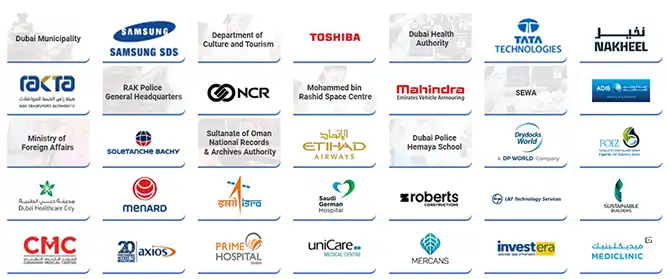ISO Certification in Uganda
ISO Certification is growing in popularity to improve business operations and gain a competitive edge. The process of obtaining ISO certification can be complex, but the benefits are clear. ISO certification can help businesses in Uganda to improve their efficiency and management processes, while also gaining recognition from customers and other businesses.
Why select us for ISO Certification in Uganda?
Gabriel Registrar is one of the most trusted and respected companies in the industry and we are an experienced and reputable certification body that has accredited ISO certification bodies across the globe. We are also able to provide ISO Certification in a wide variety of industries, such as automotive, aerospace, construction, and many others.
Process of ISO Certification in Uganda:
The process of ISO Certification typically involves many steps. Here is a general overview of the ISO process:

Benefits of ISO Certification in Uganda
ISO Certification offers several benefits to organizations. Some of the key advantages include:
- Enhancing credibility and reputation,
- Improving quality and customer satisfaction,
- Expanding market opportunities,
- Boosting operational efficiency,
- Complying with regulatory requirements,
- Strengthening Risk management capabilities,
- Increasing employee engagement and motivation,
- Reducing costs.
When obtaining ISO certification, it's essential to carefully consider the potential benefits based on the selected standard and the organization's context and business sector. Benefits may vary significantly in accordance with these factors.
Requirements to get ISO Certification in Uganda
To obtain ISO Certification, organizations need to fulfil specific requirements. Here are some key points to consider:
- Select the pertinent ISO Standard
- Establish a Management System
- Detailed Information
- Perform internal audits
- Remedial Measures
- Review of Management
- Choose a Certification Body with Accreditation
It's important to note that the specific requirements and processes may vary depending on the chosen ISO standard and the certification body involved.
FAQ for ISO Certification in Uganda
1. How could I get an ISO Certification in Uganda?
Achieving ISO Certification can be a strategic advantage for businesses. The process begins with selecting the standard best suited to the enterprise's aims and intentions. Afterwards, policies and procedures must be developed around that standard. Auditing is an integral step to then ensure all regulations are being met. Finally, a third-party accreditation agency’s review is required for acquiring approval in Uganda. To retain their ISO certification status, businesses will also need to participate in periodic reviews and assessments.
2. What is the role of a certification body in the ISO certification process?
A certification body is responsible for conducting the certification audit, evaluating your organization's quality management system, and issuing the ISO certification if your organization meets the requirements.
3. How to Apply for ISO Certification in Uganda?
Organizations can gain significant advantages from attaining ISO Certification, a process designed to ensure compliance with international standards. The result of this process is improved quality management systems and operational efficiency. To get started, businesses must contact an approved and accredited service provider located within the country. In Uganda, these certified service providers may be found at:
Email: admin@gabrielregistrar.com
Phone: +971-56-5773585
4. Why should my business in Uganda consider ISO Certification?
ISO certification demonstrates your commitment to quality and customer satisfaction. It can also open doors to new business opportunities and is often a requirement for certain government contracts
5. Who Needs ISO Certification in Uganda?
In Uganda, various organizations across different industries can benefit from ISO certification, including manufacturing (ISO 9001), service providers (ISO 9001 or ISO 20000), construction (ISO 9001), food industry (ISO 22000), information security (ISO 27001), environmental sustainability (ISO 14001), and employee safety and well-being (ISO 45001).
6. What is the validity of the ISO Certification in Uganda?
ISO certifications typically have a three-year validity period in Uganda, as is the case in many countries. To maintain certification, the organization must remain compliant with ISO standards and continuously improve its processes. Surveillance audits conducted by the certification body assess ongoing compliance and certify the organization at the end of the three-year cycle. The recertification process involves evaluating the organization's Quality Management System (QMS) and verifying its adherence to the ISO standards.
7. What is the validity of the ISO 9001 (QMS) Certification in Uganda?
ISO certifications typically have a three-year validity period in Uganda, as is the case in many countries. To maintain certification, the organization must remain compliant with ISO standards and continuously improve its processes. Surveillance audits conducted by the certification body assess ongoing compliance and certify the organization at the end of the three-year cycle. The recertification process involves evaluating the organization's Quality Management System (QMS) and verifying its adherence to the ISO standards.
8. What is the cost of ISO Certification in Uganda?
The cost of ISO Certification is determined by a few factors, such as the size and complexity of your organization, the relevant ISO standard selected and the chosen certification body. Additional services may also influence cost accordingly.
9. How do I start the ISO certification process in Uganda?
You should start by selecting a certification body in Uganda, often referred to as a registrar or certification agency. They will guide you through the certification process.
10. Can small businesses in Uganda obtain ISO 9001 (QMS) Quality Management certification?
Yes, companies of all sizes can obtain ISO 9001 QMS certification, and there are standards designed specifically to meet the requirements of small enterprises.


